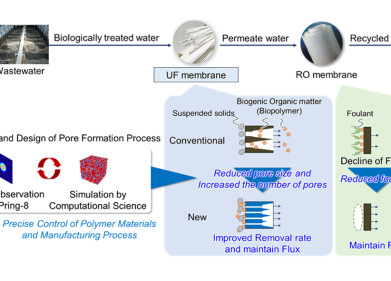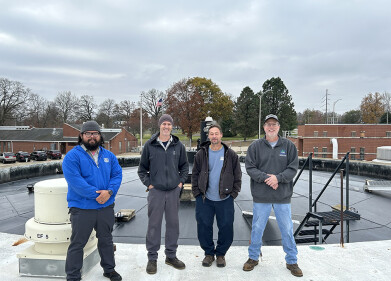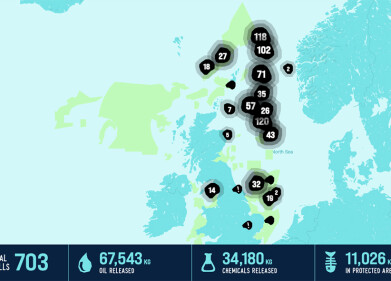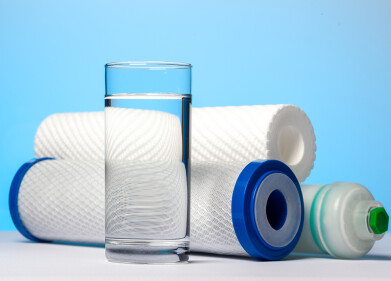Water/Wastewater
Are Bubbles the Answer to Treating Wastewater in the Pulp and Paper Industry?
Sep 24 2014
Pulp and paper making is renowned as one of the most water intensive industrial production processes anywhere. Processing pulp requires huge quantities of water to deliver a consistent structure. The constituents of paper are processed into a sludge form and with water used at almost every stage of production, the result is the generation of a high quantity of highly contaminated level of wastewater which has to be treated to meet regulatory and environmental consents.
Some estimates suggest up to 17.4 cubic metres of water are required to produce one metric tonne of paper, with the raw wastewaters from pulp and paper and board mills often requiring complex biological treatment processes. It’s a challenge the industry has embraced however, with around 92% of the water used returned to the environment, after it has been treated. The filtering and removal of contaminants from the wastewater can be very energy demanding, with mechanical surface aeration and sub-surface jet aeration systems for biological treatment, known to consume high volumes of electricity. Energy reduction, operational cost reduction and water recycling initiatives are therefore important objectives for many paper manufacturers.
In pulp and paper mills, waste water treatment can take on several forms, from filtering through to biological treatment process. For biological treatment to be effective, the waste water needs to be effectively aerated.
Many UK mills will use mechanical surface aeration techniques in order to supply the required oxygen for bacteria to achieve an aerobic biological treatment, especially where an activated sludge process is involved. However, mechanical surface aerators are typically expensive to operate and maintain, old, prone to breakdown, due to the number of moving parts and have considerable energy consumption, all of which adds up to relatively high operating costs.
Enter Mapal Green Energy with its innovative Floating Fine Bubble Aeration technology (FFBA), currently used by Anglian Water with further deals signed with Thames Water and United Utilities for systems to go live before the end of the year, where Mapal GE’s equipment will be used to treat domestic and industrial wastewater in a range of lagoons and reactors. The same technology has also been deployed successfully in South Africa in the pulp and paper sector and again in factory farming installations in Israel, where the challenges of treating aggressive and hazardous liquids echo many of the issues faced in the pulp and paper industry.
A revolutionary solution, floating fine bubble aeration approaches the challenge of wastewater oxygenation by marrying the strengths of mechanical surface aeration technology – easy to install and accessible for maintenance - with the efficiency which is derived from sub surface fine bubble aeration systems. With no moving parts generating friction and driving high energy consumption, a key benefit for users of Mapal Green Energy’s floating fine bubble aeration system is its dramatically reduced energy bill. Tests around the world have shown that in some cases, compared to mechanical surface aeration, a plant’s energy consumption can be reduced by up to 70% using the Mapal system, with savings of 50% regularly achieved.
Commenting on the ease of installation of the system, Mapal’s UK sales manager Andy Carling said, “By substituting a surface mounted propeller for a system of blowers and fine bubble diffusers, not only is energy consumption reduced, but installation and maintenance is dramatically simplified. The system does not require a tank to be drained, nor does it need to be attached to a concrete floor. Aerators are automatically adjustable to water depth and because they float, are always level, thus delivering an even flow of oxygen within the reactor.”
Mapal’s units are made from robust stainless steel, so have a long life and as a modular system, the installation can be added to or taken away from quickly and easily.
A technology which is creating waves amongst the UK’s water utilities looks set to revolutionise wastewater treatment in selected sectors of the pulp and paper industry too.
Events
Mar 12 2025 Montreal, Canada
Mar 18 2025 Expo Santa Fe, Mexico
Mar 18 2025 Moscow, Russia
Mar 19 2025 Manila, Philippines
Mar 20 2025 Guangzhou, China














